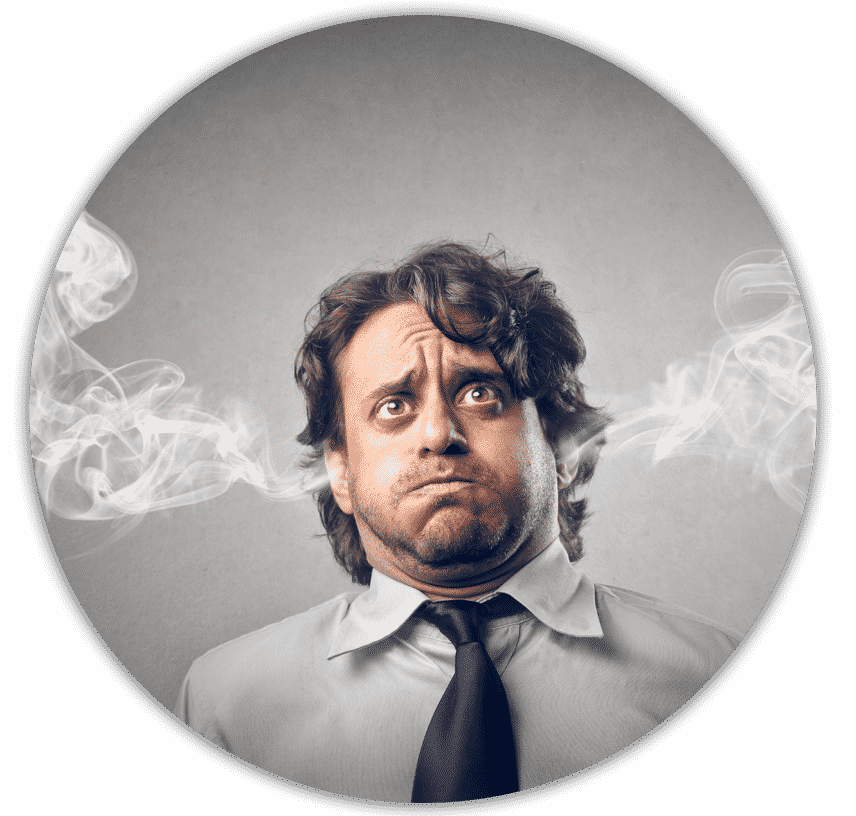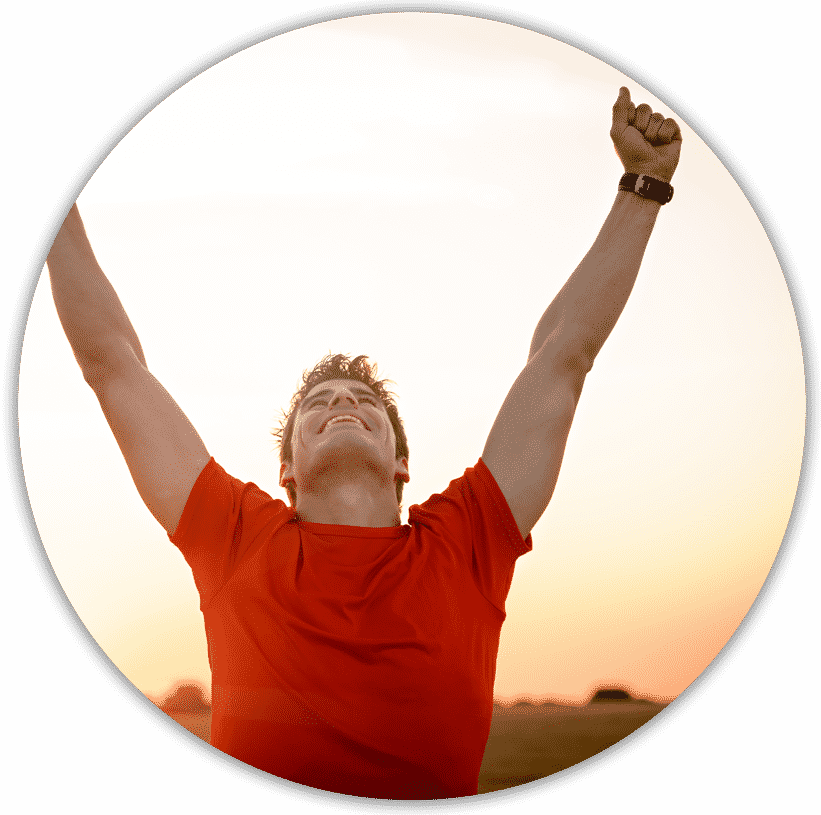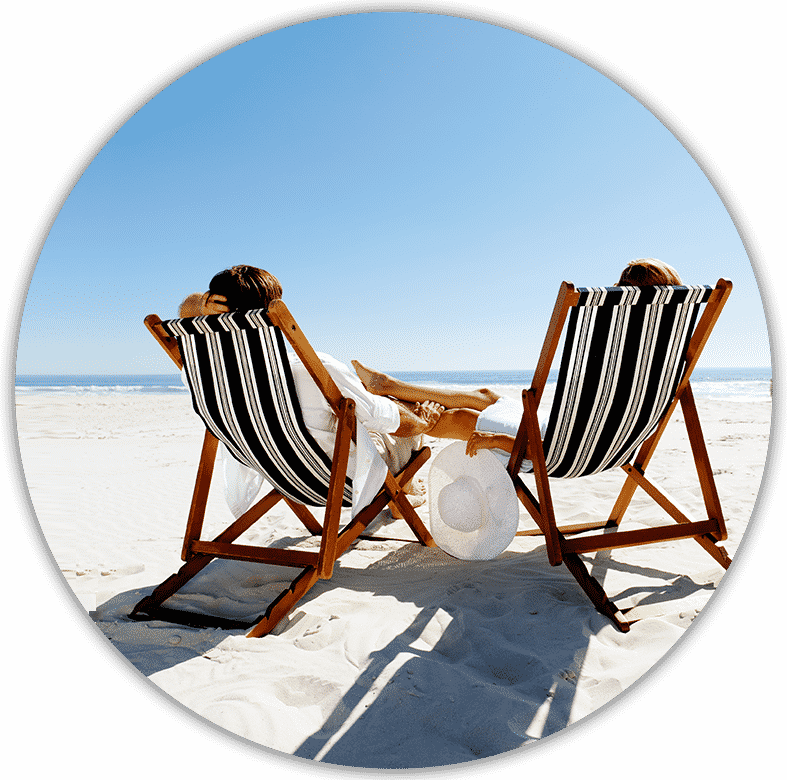How the mind and body work together for Optimized Health & Fitness
All healing is self healing. We have within us a wise physician. Albert Schweitzer, M.D.

Stress Less for Health, Vitality and Fitness
Let’s make practical use of this knowledge and examine what typically causes the disruption of wellness in the first place. Simply put, it is stress.
Stress is our automatic, instinctive internal reaction manifested as psychological, physiological and behavioral responses to things that challenge or threaten us. It is a relic of a bygone era otherwise known as fight-or-flight. This fight-or-flight self-protective instinct, which kept our ancestors safe, is killing us today.
Everyone knows that stress is a major modern blight, at the root of 80% of all doctor visits and nearly all chronic disease. It also costs Corporate America over $300 billion per year in increased absenteeism, tardiness, loss of worker talent, lack of productivity and loss of competitive edge.
To make matters worse, burnout too much high stress for too long affects peak performers disproportionately greater than average performers, robbing individuals and companies of their best talent and assets.
“Considering this massive burden on our health and the bottom-line, why does stress still plague us?”
Considering this massive burden on our health and the bottom-line, why does stress still plague us? One would think that with its immense impact, sufficient resources would be directed towards managing stress and mitigating its damage.
Many people are ill-informed about the accumulative and insidious nature of stress, resulting in its management being improperly approached. By the time we notice the scattered thinking, stiff neck, pit in the stomach, hypertension, sleepless nights, mood swings, agitation, anxiety or shortness of breath, we are already ensnared in the stress response.
Our response to stress precedes our awareness of it because it is an instinct and therefore auto-matic. Stress must be dealt with at its source inside us, as stress is our internal response to things that challenge or threaten us before it adversely affects the mindbody. Otherwise, we remain burdened by our fast-paced modern lives, where our health and performance are under excessive burden, and we find ourselves deprived of happiness and creativity.
This is why in the pages that follow you are encouraged to be mindful of the issues and cir-cumstances in our lives that can interfere with your natural functioning. We must endeavor to intend and optimize health, fitness, and happiness by crafting a lifestyle that allows these features of modern living to exist in equilibrium and complete balance.


Take a Mini-Vacation
How do we stop this unconscious response to stress? More tips are given in the pages that follow; however, in essence, it is by gaining awareness of four key areas that are affected simultaneously by this automatic stress response: the body, the mind, the breath and the emotions. Additional resources are also available in the store at JosephGiove.com/store.
To illustrate, let’s take a virtual mini-vacation to the beach on a warm sunny day. Read the next paragraph, then sit back in your chair, close your eyes and lose yourself in your imagination…
You are on the beach looking out toward the warm, shimmering water, the sun warming your skin, the brightness filling your eyes, bringing a smile to your face. You inhale the moist, fresh air deeply, and as you exhale, relax into the rhythmic sound of the waves gently caressing the shore. The azure sky is clear, save for a few billowy clouds lazily drifting by. Find a cozy spot in the sand to sink into, but as you do, you notice the warm, soft sand gently bristling against the bottom of your feet, between your toes. Using your hands, dig out a shallow trough in the sand to make a cozy recliner to sit in. Feel the warm sand in your hands as you do this. Pick up a handful of sand and toss it in the air, watching the wind breeze it away, and the seagulls screaming and swooping in eager hopes of finding discarded morsels.
Take in another deep whiff of the sea air, filling your lungs with this calming nectar. Lie back in your cozy nest of sand, feeling the warmth of the sand deeply penetrating your body, the grittiness of the sand against your back, while warm, safe rays of sunshine gently warm your skin. Breathe in deeply again as you close your eyes there on the beach, feeling yourself becoming heavier with each breath, sinking into the earth in safety and release. Take a two-minute or more nap on the beach right now.
“Your deep, subconscious mind cannot distinguish between the real and imagined. To your subconscious mind, imagining yourself being on the beach is identical to being on the beach.”
Do this now. If you believe that you are too busy to take this three-minute vacation, it’s a sign that you are on the slippery road to unhealthy stress accumulation.
When you have finished the mini-vacation, consider where in the body you feel the effects of this relaxation. Is your chest more relaxed and does it feel lighter? Has the tension behind your eyes released slightly? Did you relax your jaw or stop clenching your teeth? Is your breathing deeper, smoother, and more rhythmic? Do your finger tips and toes feel warmer? Has the scowl on your brow become a smile on your cheeks? Has the incessant stream of thoughts slowed or dissipated?.
Your deep, subconscious mind cannot distinguish between the real and imagined. To your subconscious mind, imagining yourself being on the beach is identical to being on the beach. Once there, your mindbody remembers similar past experiences and emulates the same physiological state of actually being there.
That state translates to slower, deeper respiration, a reduction in heart rate and blood pressure, a decrease in stress hormones, normalization of digestive acids, the release of achy muscle tension, an increase in creativity and optimism, and a multitude of other benefits too lengthy to include here.
As you experienced in the mini-vacation, thoughts lead to emotions, which are physiological states, which you interpret as feelings, in this case, they were pleasure and relaxation. These feelings trigger new thoughts, connect to new emotions and feelings and instigate a cascade of positive mental, emotional and physiological effects that lead to a “relaxation response.”
This is the opposite of a stress response. If a drug could be produced to achieve these remarkable results without side effects, it would corner a multi-billion dollar market. Amazingly, this regenerative power lies untapped within you until activated by your imagination.
The goal of various mindbody techniques is to stimulate this imagination while releasing non-supportive actions and beliefs, regaining inner and outer balance, helping you remember wellness and reprogramming your neurobiology to turn these changes into new responsive habits. Some very effective techniques are meditation, hypnosis, self-hypnosis, neural reprogramming, thought field therapy, energy psychology, yoga, conscious breathing and creative visualization.

Nature’s Imperative
Ultimately we can all learn to make the choice for wellness and fitness at will: to experience relaxation over stress when navigating the twists and turns of modern life. By the time this becomes a habit, you should be able to release what obscured your living memory of what you thought wellness was in your mindbody, and begin to thrive truly. We become masters of change, embracing it consciously while optimizing our personal potential for health, fitness, and happiness.
Ultimately this is nature’s imperative for us. This is exactly why it is more important than ever to remember what wellness truly is so that we may indeed bring our unique gifts to the world.


